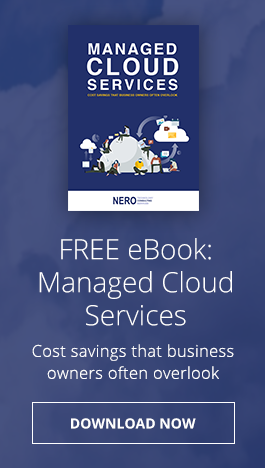vCIO Services
All businesses are constantly challenged to improve client service, control costs and uniquely distinguish themselves, and one area they invariably rely on to accomplish these goals is technology.
But firms sometimes lack clear direction on how to implement and use technology. That's why businesses sometimes turn to outside resources to help them address technology issues-from consultants to the full outsourcing of IT infrastructure and operations. Businesses should view a technology consultant as an agent for change who can clarify priorities, identify constraints and validate proposed solutions.
A new trend among consulting firms is to offer services with labels such as "Virtual CTO," "Virtual CIO" - outsourced services that address issues ranging from IT strategy to network or server administration. These services are retainer-based, fixed-fee, long-term relationships that provide ongoing assistance as an adjunct to a firm's in-house staff.
Outsourcing has its benefits when compared to the cost of compensating, recruiting, training and retaining a full-time technology staff. The fact that CIO/CTO technology jobs usually entail high salaries (150K+), training costs, and high turnover, make this especially true.
Here’s how your business can benefit from Managed Services:
- Outsourced Consultant vs. In-house Employee? – A true consultant usually has broad knowledge of the latest technology solutions or a specific knowledge in areas such as risk management or performance systems. They bring experience and perspective to the table, including knowledge of what your peers are doing, cost-benefit parameters, pitfalls to avoid, best practices and key factors for success. Additionally, the consultant can call upon people and resources that are certainly more powerful than what one individual alone can provide.
- A Different Perspective From an Outside Point of View - Consultants offer an independent viewpoint to the companies he serves, free from departmental bias and organizational politics. They can add structure and clarity to technology projects and help the entire firm buy into the changes. They can also bridge the communication gap that may exist between non-technical managers who have difficulty understanding techno-talk and staff members who have a detailed knowledge of technology issues. A qualified consultant should help your firm focus on the business issues behind a technology initiative without being enamored solely with the technology.
- Relationships That Are More Fluid - A "virtual CTO" can help firms develop, among others, strategic plans, IT budgets, capital spending plans, policies and technology assessments. Virtual resources differ from traditional consulting in that they are ongoing relationships as opposed to one-time projects. The relationship takes on a more fluid, ad hoc form than a project-based assignment. The long-term nature of the relationship helps ensure that the consultant fully understands the firm's environment, goals and constraints.
- Flexible Terms Without The Salary And Benefits - Consultants acting as "virtual staff" may manage or operate applications such as client call centers, internal help desks, client portals, data aggregation or infrastructure components (data centers, servers, wide-area networks, exchange servers and disaster recovery). Instead of an hourly rate, the fees are often per unit of output-based on the number of servers managed, for example. A consultant's compensation may also be a percentage of achieved cost savings. This would be in cases where the consultant is focused on areas such as alternative vendors, outsourcing or renegotiated contracts-efforts designed to make technology operations more streamlined and cost effective.

